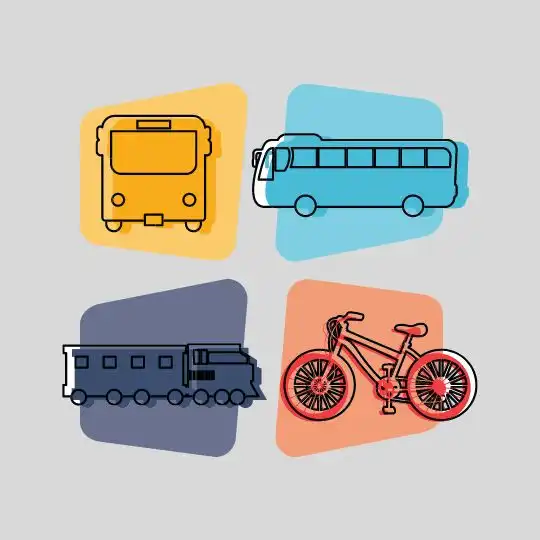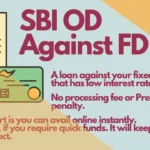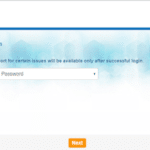Do you hate having to worry about making ends meet or finding a way to put money aside?
Your search ends here! If you want to learn how to save money and cut costs, this article has ten great suggestions for you.
These suggestions are made to help your bank account by reducing wasteful spending and developing innovative ways to save money. These methods will set you up for success, whether your goal is to increase your financial stability, save for a major purchase, or construct an emergency fund.
“He who buys what he does not need, steals from himself.”
– Swedish Proverb
As you are here with us, we presume that you are looking to improve your personal finances. We’ve included some flexible suggestions to help you out.
Whether you are a new graduate, a young professional, or even a seasoned saver seeking new ways to save money, read on; some of the points may be useful.
Here are some clever ways to save money and cut costs, so get a pen and paper ready to jot down some notes.
Tips:
Before we begin, just make sure that if you don’t have a savings bank account, open one now. You can do so online as well as by visiting the bank. Either way, its easy and less time-consuming.
Next, make sure you have activated your internet banking as well as your mobile banking. Why are we suggesting these? It will help you in many ways while managing your funds, even without going to the bank.
You save time, and as you know, time is valuable, so you can concentrate on other important issues.
Also, update yourself with your banking products all the time. Just a couple minutes every now and then is sufficient to know that.
Now, let’s get your financial house in order and accomplish all of your financial objectives. How about we begin?
1. The Importance of Managing Expenses and Saving Money

Saving money and keeping track of spending are more crucial than ever in today’s fast-paced world.
Getting a handle on your spending is the first step in reaching your financial objectives, whether they be saving for a rainy-day fund, a major purchase, or just better financial stability.
If you want to know where your money is going, you need to keep track of your spending.
You can’t find places to save money until you have a good idea of what you spend your money on. To better understand your spending habits and identify areas where you may save money, it’s a good idea to keep track of your spending on a regular basis.
To keep track of your spending and put money aside, making a budget is a must. You may better manage your money by creating a budget and dividing it up into specific categories like housing, food, transportation, and entertainment.
Having a budget in place can help you keep your spending under control and increase your savings because it will lay out your spending limits in a transparent manner.
The best approach to reducing spending and increasing savings is to cut back on things that aren’t absolutely necessary.
Look closely at your spending patterns and see if there are any places you can cut back.
Consider whether you really need that coffee shop latte every day or if you could whip up a homemade version in the comfort of your own home.
You won’t believe how much money you can save by cutting back on or doing away with these little treats.
2. Track Your Expenses

To start managing your money well, you need to start tracking your expenses.
But the most important task is: how do you get the actual figure of your expenses? Its through your bank account statement, and you can get it via online banking or request it from your bank any working day.
It’s critical to know exactly how your money is being spent so you can figure out ways to cut back. And you can get a clear idea of your spending with your bank account history.
Now that you have the data on your spending, get a pen and paper; if required, use a budgeting app or a spreadsheet to outline all your expenses and start tracking meaningfully.
3. Create a Budget

Making a budget is the next step when you have an accurate view of your spending.
Housing, transportation, food, and entertainment are just a few examples of the many areas that might benefit from a well-thought-out budget.
To help you save money and live within your means, it offers a spending plan.
Get things rolling by making a master list of all your income and expenses. Set attainable savings goals and be reasonable about your expenditures.
Set aside a specific amount of money each month and put it in savings. Make sure you stay on track with your budget by adjusting it as you track your expenses.
Tips:
As soon as you get your paycheque, put aside the amount you want to save, then create your monthly budget with the rest of the amount. That’s how you put a firm obligation towards your investments. Naturally, your budgeting is more efficient as you have already planned your monthly savings.
4. Cut Back on Unnecessary Expenses

One of the best methods to save money is to cut back on spending that isn’t absolutely required.
Examine your spending habits carefully to find places where you can cut back. Consider bringing your own lunch a couple times each week rather than ordering takeout every single day.
Get rid of any memberships or subscriptions you’re not using. These little adjustments might add up to big savings in the long run.
The entertainment budget is another place you can make cuts. Seek out free or inexpensive local alternatives to going to pricey concerts or events.
Spend your money on happy hour specials or have a movie night in with your buddies.
Keep in mind that the point is not to cut back on fun but to find methods to have fun without breaking the bank.
5. Reduce Utility Bills

Both the environment and your wallet will benefit from a decrease in your utility expenses.
You may save a lot of money on your energy expenses by just making a few little adjustments to your daily routine.
To begin, when you aren’t using an appliance or light, switch it off and remove the cord. Invest in light bulbs and products with energy efficiency ratings.
In the winter, turn down the thermostat a notch, and in the summer, employ fans rather than air conditioning.
These simple adjustments can have a big impact on your utility costs.
6. Find ways to save on Transportation Costs

Expenses related to transportation might quickly deplete your monthly budget.
You can cut costs and save more money if you can figure out how to save money on transportation.
Instead of traveling alone, think about carpooling with coworkers or taking public transportation. Instead of using your automobile, try walking or riding your bike to local places.
You may save money and lessen your impact on the environment by cutting back on petrol and parking.
7. Save on Groceries and Dining Out

You can save a lot of money without compromising on quality when you shop for groceries and eat at restaurants.
Before you go grocery shopping, make a list of everything you need and sit down to plan your meals.
Be disciplined, and don’t give in to impulsive purchases. Save money on food by keeping an eye out for specials and coupons.
Things you use often might be good candidates for bulk purchases. Lunch specials and happy hour offers are great ways to save money when eating out.
The health benefits and financial savings of cooking at home should convince you to do it more frequently.
8. Use Technology to Save Money

Saving money is now easier than ever, thanks to technology.
Use coupon apps and websites to your advantage and save money.
Make sure you’re getting the greatest value by shopping around online first. You can keep an eye on price changes and take advantage of sales by using price-tracking software.
Make saving a habit by having money automatically withdrawn from your checking account at regular intervals.
You may cut costs and save time by making use of technology.
The other good thing about technical products and services is that you may find a lot of financial transactions at discounted rates.
Fund transfer charges are cheaper online than offline. Even some banks offer services for free, while they would be chargeable if done over-the-counter.
Take advantage of technology, and you may be able to save more in the long run.
Tips:
Keep track of your bank account meticulously, refer to your bank account statement, and see if there’s any income leakage. It may be charges and fees that are not much of a use. Deactivate those services.
9. Earn Extra Income

Think about getting a side gig if you want to put more money away.
There are many ways to supplement your income if you don’t have full-time work.
Some examples include freelancing, creating a side business, or making money from your hobbies.
Think about how you can make money off of your passions and skills.
Boosting your income is just the beginning; you’ll also learn a lot and meet plenty of interesting people.
10. Set Financial Goals and Review your Progress Regularly

To keep yourself motivated and focused on saving, it is vital to set financial goals.
Whether your financial objective is to save for a housing down payment, eliminate debt, or retire early, setting clear and attainable goals helps keep you motivated.
Divide your long-term objectives into more manageable chunks, and reward yourself when you reach each one. Check in on your finances on a regular basis; if necessary, make changes to your plans and objectives.
Ultimately, reducing spending and increasing savings is a prudent financial decision that can bring you more financial stability and tranquility.
Get on track to achieve your financial goals by keeping track of your spending, making a budget, cutting back on unnecessary expenses, lowering utility bills, finding ways to save on transportation costs, saving on groceries and eating out, saving money with technology, earning extra income, and setting goals.
Keep in mind that even a little increase in your savings rate will help you achieve your long-term financial goals. Get a handle on your money situation right now and put some money away!
Read Forbes 10 Best Banks in India; it will enable you to decide which bank to go to and start saving and investing.
Conclusion
In today’s fast-paced world, it is more crucial than ever to save money and keep track of spending.
By tracking your expenses and creating a budget, you can better understand your spending habits and identify areas where you can save money.
Cutting back on unnecessary expenses, such as daily coffee shop visits or entertainment costs, can also lead to significant savings.
Additionally, reducing utility expenses, finding ways to save on transportation, and being mindful of grocery and restaurant spending can help save money.
Utilizing technology, such as coupon apps and price-tracking software, can further aid in saving money.
Consider earning extra income through side gigs and setting clear financial goals to stay motivated. Ultimately, reducing spending and increasing savings can lead to greater financial stability and tranquility.









